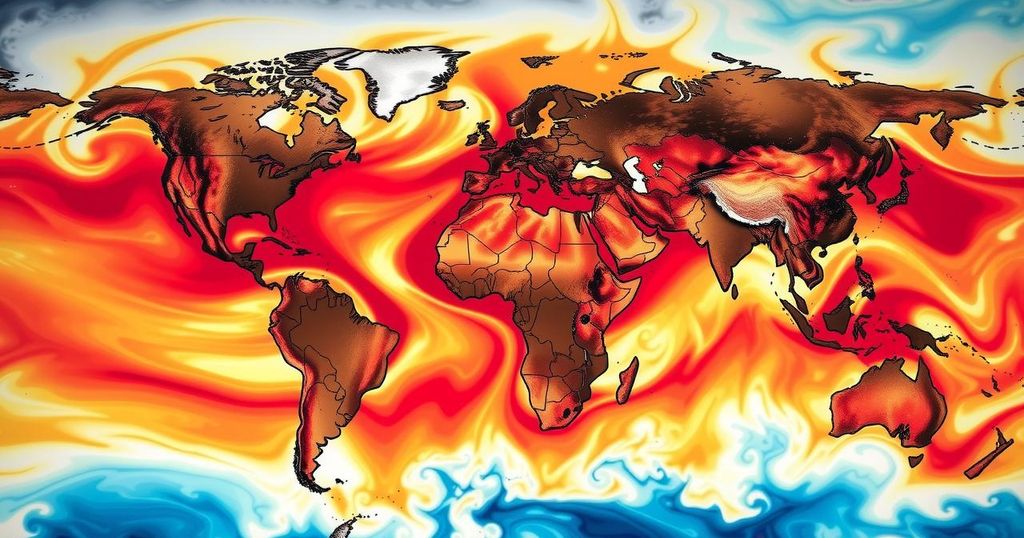European Union scientists have indicated that 2024 will become the hottest year on record, with temperatures exceeding 1.5 degrees Celsius above pre-industrial times. Severe weather events across the globe demonstrate the influence of human-induced climate change. Carbon emissions reach unprecedented levels, highlighting the necessity of urgent action to mitigate these effects, even as scientists monitor possible natural cooling phenomena in the coming year.
According to European Union scientists, 2024 is poised to be recorded as the hottest year in history, surpassing all previous global temperature data. The projections, derived from the Copernicus Climate Change Service (C3S), indicate that this year will set a new record, with temperatures consistently exceeding 1.5 degrees Celsius above the pre-industrial levels of 1850-1900. This statement follows the recent international climate discussions which failed to adequately address the escalating costs associated with climate-induced disasters.
The extreme climatic events experienced globally throughout 2024, including severe drought conditions in Italy and South America, fatal floods across Nepal, Sudan, and Europe, and deadly heatwaves in regions like Mexico and Saudi Arabia, illustrate the immediate effects of anthropogenic climate change, as confirmed by scientific investigations. The month of November this year was the warmest on record, closely trailing behind the warmer November of the preceding year.
Julien Nicolas, a climate researcher at Copernicus, remarked that “we’re still in near-record-high territory for global temperatures, and that’s likely to stay at least for the next few months”. The primary driver behind the acceleration of climate change remains carbon emissions from fossil fuel combustion, which have not substantially decreased despite global pledges aimed at achieving net-zero emissions. Current emissions are anticipated to reach unprecedented levels in 2024.
Scientists are presently analyzing the potential emergence of the La Nina weather phenomenon in 2025, which could result in a temporary reduction in global temperatures; however, this would not counteract the underlying trend of climate warming linked to greenhouse gas emissions. According to Friederike Otto, a senior lecturer at Imperial College London, the potential onset of a La Nina event does not guarantee a return to “safe” or “normal” temperature conditions, with projections still indicating high temperatures and the associated risks of heatwaves, droughts, and extreme weather events throughout upcoming years.
The current advancements in climate science demonstrate a clear link between human activities, primarily fossil fuel combustion, and rising global temperatures. The effects of climate change are increasingly observed through various extreme weather patterns and natural disasters that adversely affect numerous regions around the globe. The ability to accurately predict and correlate temperature changes with historical records, as facilitated by institutions like the Copernicus Climate Change Service, underscores the urgency of addressing climate change to mitigate future consequences.
In summary, 2024 is confirmed to be the hottest year on record, emphasizing urgent climate challenges exacerbated by human activities. With ongoing global CO2 emissions at an all-time high, comprehensive strategies to reduce carbon footprints remain critical. Even potential natural temperature fluctuations, such as those caused by La Nina, are unlikely to reverse the lasting impacts of climate change. Vigilance and action are necessary to avert further climate-related disasters and protect vulnerable communities worldwide.
Original Source: www.euractiv.com






